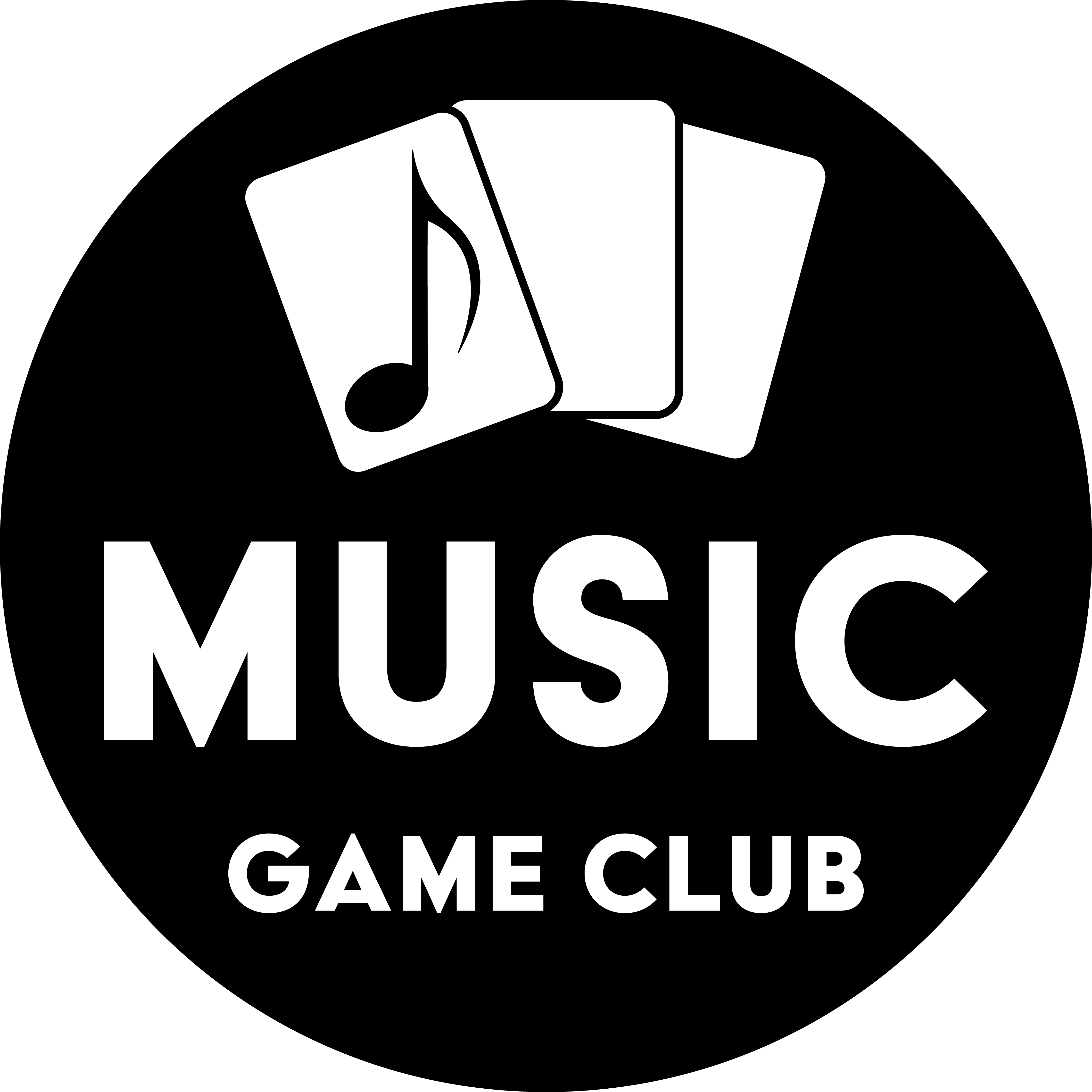
Whether you are new to playing games during music lessons or you’re an old pro, you’ll find these 7 easy music game tips for teachers helpful.
If you’re new to the music game fun, you may want to check these blog posts to get you started:
- How to Make Time for Music Games in Lessons
- How to Play Music Games with All Students & Levels
- The Easy Way to Include Music Games in Lessons
Now, for those 7 easy music game tips!
Rebekah shares these easy music game tips in this quick, 3-minute video.
But you can also read the break-down below.
1) Have the game board & cards facing the student
If you’re playing one-on-one with a student, remember to point the game board in their direction.
This means you’ll be playing upside down. 😉
This is a simple way to make the music game experience the best possible for your student.
2) Make sure multiple students are spaced evenly around the board
If you’re playing a music game with a group of students, be sure they are all spaced around the board evenly.
Often, more aggressive and extroverted students will put themselves in a prime spot because they are so into the game.
Meanwhile, your more shy and introverted students might back up.
Don’t make too big a deal about it so as to embarrass your shy students, but do try to be cognizant of your students’ position around the board.
You want all students to have an equal chance and no one to have an advantage because of position.
3) Read instructions and play the game ahead of time
The best way to make music games go smoothly is to be prepared.
Definitely read through the game instructions before you plan on playing the game in lessons (at Music Game Club, we try to make this as easy for you as possible and have music game video tutorials so you can watch how the gameplay goes in about 10 minutes).
Be sure you understand the gameplay and even some potential questions your students may have.
If possible, go a step further and actually play the game with your spouse or another teacher.
You might also want to practice explaining the gameplay.
Remember that the first time you play a music game with students will always be the slowest as you’re explaining both the gameplay and how to review the theory concepts with your students.

4) Keep the directions close by
You never know when a student might throw off you with a question.
Hopefully, though, if you followed tip #3, you’ll be well-prepared and know the answers to all their questions.
But if not, having the directions nearby so you can skim and get your answer.
We always have Music Game Club instructions formatted to print on the back of the success poster so that it’s both nearby to help you out and ready for celebration.
5) Play a music theory game every lesson
Music games are not a waste of time.
Instead, they give the student a fun way to review music theory–sometimes without the student even realizing they’re getting in theory review!
We also like music theory games because they end lessons on a high note.
Students will leave the lesson smiling and pumped about their lesson experience (which parents always love to see!).
6) Always check students’ answers
This may be an obvious music game tip, but sometimes students shout out a super confident answer… but it’s wrong!
So while you want students to have fun, remember that music theory games are also educational and the purpose is to review correct music concepts.
At the same time, you do want to be considerate of more sensitive students.
If penalties for a wrong answer are too discouraging, then walk the student through getting the correct answer and still let them move forward.
7) Don’t be scared to play harder theory concepts in music games
Music theory games are a great educational tool.
Even if you think your student is “not quite ready” for a certain concept, they can still play a game and learn!
Music theory games are the perfect place in which to introduce your student to a new theory concept, even if they won’t use it in music for months or years.
Because playing games allows students to learn concepts better, this means that music theory games provide a solid foundation for students to be introduced to those harder theory concepts.
What easy music game tips for teachers do you have?
Comment and share what you wished you knew as a younger teacher… or what is working really well for you right now!
You may also like:
- How to Play Music Games in Group Piano Lessons
- How to Play Printable Music Games in Virtual Lessons
- 5 Low-Prep Music Games
Don’t miss out!
Follow us on Instagram, Facebook, TikTok, YouTube, and Pinterest.
Or… get ALL the teaching inspiration and game ideas we share, sign up for our newsletter and don’t miss a thing!




0 Comments